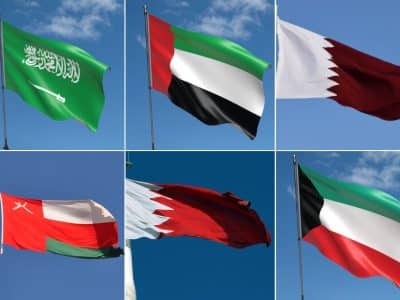A teacher shortage in the GCC has become the second worst in the world. The region’s rapidly rising populations – made up of mostly expatriates who bring their families, adding thousands of new people to cities every month – combined with increasing living costs and weaker economies, is placing pressure on one of the sectors most emphasised by governments as they attempt to climb out of an era of oil dependence.
The dilemma has not come suddenly. Education departments have planned relatively well, with so many new schools planned to open in the next few years concerns have been raised over whether they will all survive.
The problem is attracting sufficient teachers to a foreign land amid a worldwide shortage. The US, which has a much higher local pool of teachers to start with, has resorted to more heavily relying on substitute teachers, recruiting from overseas and even hiring interns and fresh graduates yet to formally complete their certifications.
With a small pool of local teachers and an ever-expanding student population, the GCC is finding it particularly difficult.
“With all the school operations we have spoken with across the GCC, availability of teachers came out as the biggest challenge,” says Sameena Ahmad from Alpen Capital, which recently conducted a survey of schools across the region.
As well as a shortage of qualified candidates, costs are a huge factor, Ahmad says. Salaries are soaring amid the global competition, as well as rising living costs in the GCC. New or renovated schools are facing higher construction costs due to a plethora of other building also under way by governments and developers.
The majority of teachers in the GCC are recruited from abroad, often on short-term contracts of “two to three years”, which means schools also incur additional costs such as housing, visa fees and travel expenses.
In the UAE, for example, 47 percent of the 39,000 full-time school teachers are from the UK and 13 percent from North America, compared to less than 1 percent who are nationals, according to The International School Consultancy (ISC). The figures are similar in Saudi Arabia’s international schools, where 24 percent of teachers are British, 23 percent are from North America and 4 percent are local.
An estimated 100,000 full-time UK-trained teachers were working abroad during the 2014-15 academic year, making it the world’s biggest exporter of teaching talent.
As a result, the UK is experiencing its own teacher crisis, with much of its talent lured to the Gulf by tax-free salaries and a warmer climate. The UK has then enlisted teachers from countries such as Jamaica, Canada, South Africa and Australia, creating a global domino effect.
Meanwhile, the problem is only set to worsen in the GCC, with the number of students projected to reach 15 million by 2020, up from about 12.6 million in 2015, according to Alpen Capital. The number of schools is planned to reach 1,406 by the same time, up from 1,200 schools last year.
In Dubai, there are already 173 private schools, with an additional 20 scheduled to open by next year. The increasing competition means that for the first time, the emirate is experiencing a clear shift in favour of students and their families.
“Schools who aren’t able to invest in quality teachers and technology will not be able to survive,” Ahmad says. “The UAE would still be able to attract people, but it is an even bigger challenge in other GCC countries.”
Dubai is the region’s most competitive education market, with about $1.6bn worth of tuition fees in the 2015-2016 school year, according to WhichSchoolAdvisor.
The UAE-based school review site’s 2016 UAE Teacher Survey revealed that almost three-quarters of 531 surveyed teachers, including 24 principals, are actively looking for a new position, with higher salaries as the primary motivation. Only 8 percent of teachers said they received a salary increase greater than inflation last year. Another 16 percent said their pay raise was below inflation. Nearly half of respondents had no pay rise at all.
“From our studies we know that for parents the quality of teaching talent is a top consideration when it comes to assessing the right school for their child,” WhichSchoolAdvisor co-founder James Mullan says. “The worry is that, with a well-publicised teacher shortage gathering pace among international schools across the globe, the UAE could be left behind in the ‘talent race’.”
Compounded by the impact of the rising cost of living in the country, the survey showed 44 percent of teachers want better allowances, improved housing and better career development.
A high percentage of teachers benefit from some form of expat salary package. Housing is its third most common constituent; almost half of respondents are given accommodation during their period of employment.
The head of one of the UAE’s most prestigious education providers, Kings’ School, Pablo Fetter, said with 12 percent of 298,341 classroom seats still available in Dubai for the coming academic year, “parents are given the choice, for the first time ever in Dubai, to opt for different alternatives”.
“Even though the competitive landscape is becoming more and more difficult, I am quite confident that we will be the winners in that transition,” he says.
Kings’, which says it offers high salaries of up to $100,000 a year, is planning to increase the number of teachers it employs by 10 percent to 220 by the end of next year.
GEMS Group executive director Dino Varkey says despite the teacher shortage, he receives 250 applications from experienced teachers daily. The international educator currently has about 20,000 teachers in 87 schools across 13 countries.
“We are probably the largest employer of British and Indian teachers outside of their home countries,” Varkey says.
The International School of Choueifat (ISC), which has multiple campuses across the GCC, predicts that the UAE will need at least 14,000 more expatriate teachers within the next five years as demand outstrips supply.
That presents another challenge, according to Roddy Hammond, CEO of UK-based education recruiter Worldteachers.
“The other [challenges facing schools in the Gulf] are choosing the most effective ways to attract candidates and having the best processes to reduce delays and avoid losing good candidates,” Hammond says.
Some schools have complained that Dubai’s government-controlled fee hikes restrict their ability to raise sufficient funds to meet rising costs and to attract quality teachers.
The Knowledge and Human Development Authorities (KHDA)’s fee framework allows schools ranked ‘outstanding’ in annual inspections to increase their fees by up to double the education inflation index (a separate annual measurement that considers factors such as the cost of supplies, construction and salaries), while ‘very good’ are eligible to increase fees up to 1.75 times and ‘good’ schools up to 1.5 times.
Lower-ranked schools are restricted to an increase equivalent to the value of the education inflation index.
The 2015-2016 school inspection results showed a total of 28 schools out of the 149 schools inspected improved their rating, with 12 schools improving their overall judgement from ‘good’ to ‘very good’, 16 schools were rated outstanding, 13 ‘very good’, 57 ‘good’, 56 ‘acceptable’ and seven were rated ‘weak’. None of the inspected schools were found to be ‘very weak’.
Significant increases in the number of private schools and students in Dubai and Abu Dhabi in the next few years will help attract large investments in the sector and make recruiting high-quality teachers, easier, according to Alpen Capital. Dubai is expected to have 400,000 students by 2020, with 283,800 in Abu Dhabi by 2021.
Despite the difficulty in recruiting, the UAE announced earlier this month all schoolteachers, vice-principals, principals and cluster managers working in public and private schools would have to obtain a professional teacher’s licence from the Ministry of Education, as well as sit an exam and show a portfolio of evidence.
A six-month pilot programme involving about 750 teachers is scheduled for next year, with full implementation by 2021.
Part of the GCC shortage is a lack of locals desiring to become teachers. GEMS has attempted to inspire younger generations to join “the noble profession of education”, by launching the ‘Global Teacher Prize’, worth $1m, and, in the UAE, the ‘Emirates Innovative Teacher Award’.
For now, the Gulf region is faring better than some parts of the world as it offers higher salaries and a better climate for westerners. However, with the high dependence on expatriates and the small pool of nationals inclined towards pursuing teaching as a profession, more investments are needed to keep up with the growing number of students, the increasing amount of schools in the region and, most importantly, the next wave of new teachers.








